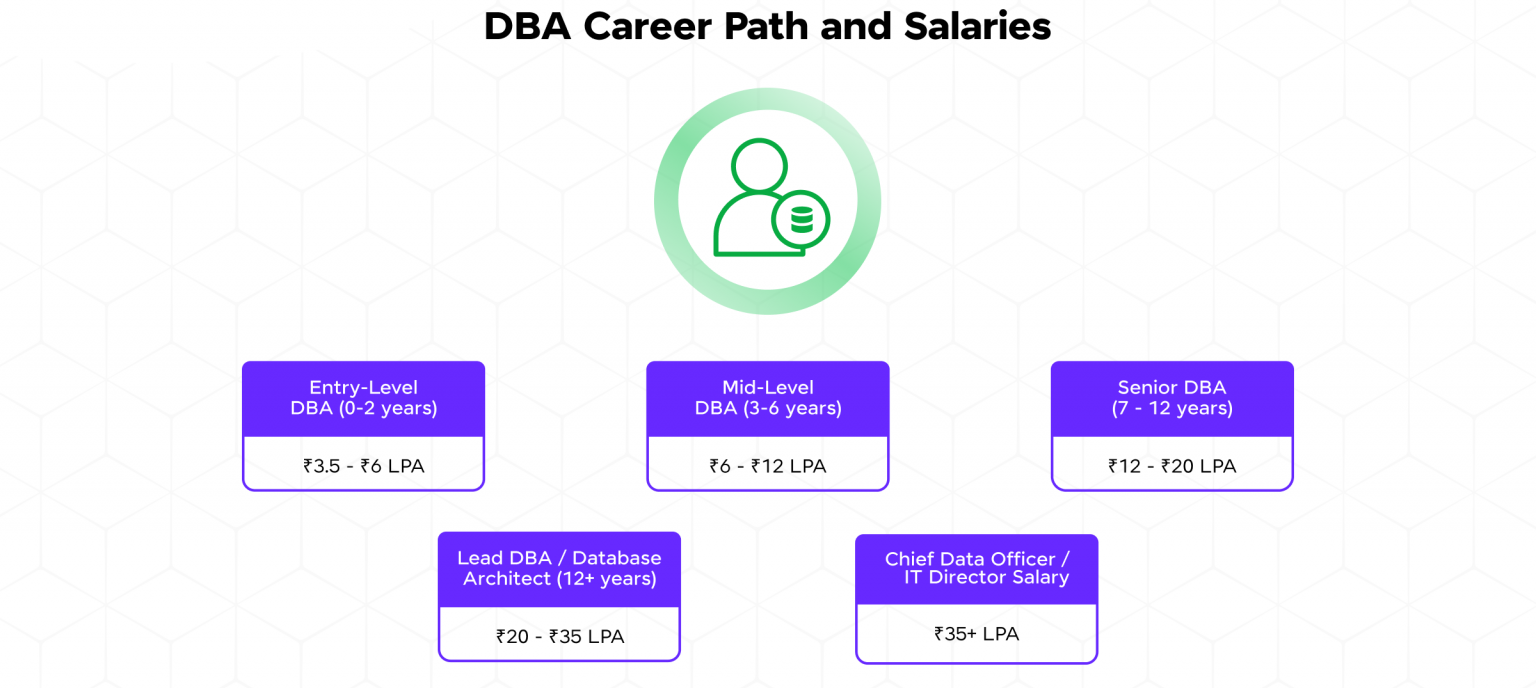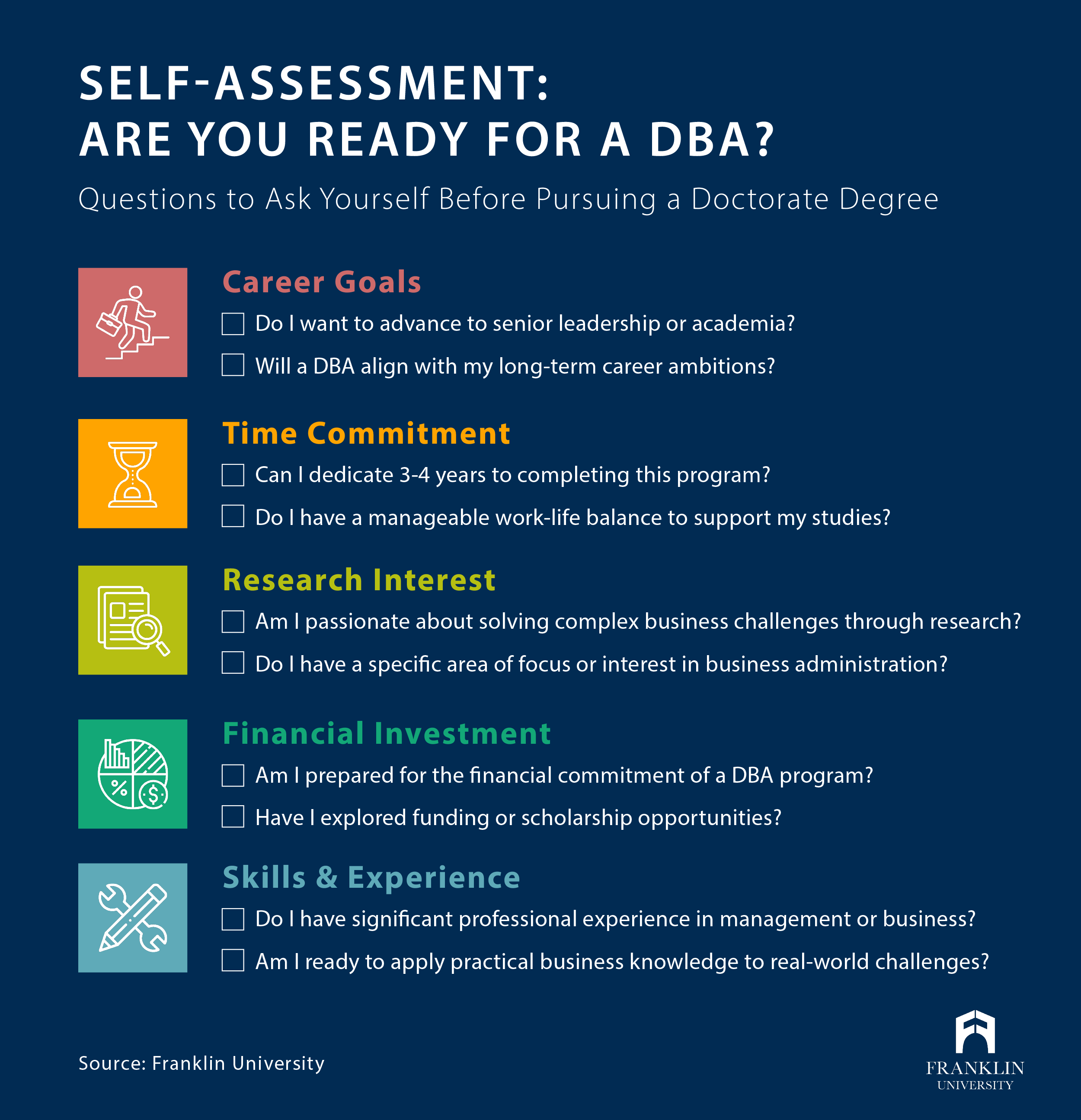Doctor of Business Administration: Why Should One Have a DBA Degree ?
Table of Contents

Have you ever thought about what makes top business leaders unique from others? Or how are they such ambitious, passionate, and great decision-makers? Well, coming straight to the point, there is an overlooked academic pursuit: the Doctor in Business Administration (DBA).
It is a degree that helps peers to solve complex business problems, boosts leadership skills to inspire teams at the highest levels, and gives credibility to influence entire industries. This isn’t just a distant dream; it’s an achievable goal through the DBA degree program.
In this blog, we will outline the unique benefits of completing your DBA, differentiate DBA from other advanced credentials, and highlight whether this is the best time to explore pursuing a DBA (Doctor of Business Administration). What are we waiting for? Let’s take a look!
What is a DBA and How Does It Differ from Other Business Degrees?
Before exploring the benefits of a DBA, it is necessary to define what a DBA is and how it aligns with other business college degrees. A DBA degree is designed for people with considerable business experience who are looking to enhance their career through an understanding of business theory and business practice.
DBA vs. MBA
One of the most overwhelming and difficult decisions is to choose between a Doctor of Business Administration (DBA) and a Master of Business Administration (MBA) degree. But our answer lies in – it depends mostly on your ambition and choice. However, some characteristics of these two business administration degrees can help you make an informed decision:
Characteristics | DBA | MBA |
Depth of Knowledge | A DBA dives deeper into specific topics, emphasising research and practical application | The MBA is a general management degree that focuses more on the practical side of advanced business concepts. |
Research Component | DBA programmes require students to undertake significant research projects, contributing new knowledge to the field | MBA programs focus on practical applications rather than extensive research. |
Practical Application | DBA students often address real-world business problems, applying their research to develop actionable strategies within their organisations. | MBA students typically learn through case studies and simulations that emphasise immediate business applications, preparing them to tackle existing business situations effectively. |
DBA vs. PhD
Both Doctor of Business Administration and PhD programs are doctoral-level degrees, but they cater to different audiences and serve distinct purposes:
1. Focus
PhD programs are mostly academic and research-based in nature, with the purpose of preparing students for careers primarily related to academia or academic institutions. DBA programs are designed to be more professional-based and serve seasoned professionals to implement research in the business environment, focused on real-world problems.
2. Career Paths
DBA graduates advance into leadership roles and opportunities within business environments, which may include executive or consulting positions. On the other hand, Ph.D. candidates pursue careers that generally involve university or college teacher employment or research roles in think tanks.

*www.guvi.in
3. Research Orientation
PhD program research overall is more theoretical, as students contribute to academic literature and expand knowledge and understanding within specific fields of study. DBA program research focuses more on applied research, where students are expected to tackle tangible business issues and problems.
4. Structure and Duration of Program
DBA programs in general tend to be more flexible than PhD programs and are intended more for working professionals, as students can engage in studies while actively pursuing their profession. This generally allows for a Doctor of Business Administration program to be shorter than PhD programs since PhD programs require students to complete multiple years of academic coursework and the dissertation process.
Compelling Reasons to Pursue a DBA Degree

*www.franklin.edu
1. Gain a Competitive Advantage
Since there are more MBAs now than at any time in history—74% more than in the early 2000s—employers are experiencing a significant shift, finding themselves with many more candidates to choose from than ever before. In addition, due to this abundance of candidates, simply having an MBA no longer guarantees a competitive advantage, as many others are vying for the same job. This surplus of candidates is partly why we have seen the average pay for new MBAs decline since the recession.
A DBA degree, on the other hand, sets you apart in a unique way that provides many distinct employment opportunities. A DBA means you have research capabilities along with experience in dealing with and assessing complex business issues. This degree represents your commitment to ongoing professional development, and it shows your ability to lead.
The majority of people with an MBA do not possess a contractor DBA, and employers realise it shows that you have the ability to deal with a whole new range of developing market complications.
2. Position Yourself for Leadership
As we mentioned earlier, thought leadership is essential in the business world. Organisations aren’t looking for managers anymore; instead, they want leaders who can inspire and innovate. A doctor of business administration gives you the ability to be a thought leader in your field.
With all your acquired knowledge from current business research, you will be ready to contribute new insights and create strategies for your organisation. This degree will not only prepare you to make decisions based on research and other evidence, but will also prepare you to lead discussions on changes and challenges in an organisation’s industry.
As a Doctor of Business Administration graduate, you will be afforded the unique opportunity to assimilate a variety of information and create strategies that are cohesive and actionable. This ability to contribute new insights into business and create new strategic plans will help you to distinguish yourself from peers and create an advantage when applying for executive positions, board appointments, and other positions of leadership.
3. Ignite Your Passion
Career satisfaction isn’t just about compensation—it’s about doing it for the love of it. A DBA can restore your passion for business by helping you explore topics that really inspire you.
DBA programs have the flexibility that allows you to structure your studies in a way that reflects the business challenges that you care about. Having this monetary and time investment brings your subject matter to life, and this may yield a new level of fulfilment in your career.
Your studies will also develop your skills to help you make a better and meaningful contribution in your organisation and possibly the broader context. When something excites you, it shows, and that excitement can be infectious for other colleagues and team members.
4. Unlock New Career Opportunities
One of the biggest benefits of obtaining a Doctor of Business Administration is that it can lead to a variety of career possibilities. A lot of professionals find themselves limited to one functional area and are unable to think creatively or develop as they wish. A DBA allows you the choice to apply your course of study to a variety of business functions, you can readily adapt to changing business situations, and you will be presented with options.
So, if you want to move to a different industry, or if you want to partake in a bigger role or even start your own business, your DBA provides the credentials and the skills to enable you to transition into these scenarios with great ease. Dissertation research has shown that employees who change jobs frequently can earn 10% to 20% more compared to employees who have stayed in the same job for too long. Getting a Doctor of Business Administration is a smart, strategic investment in your future.
The Path to Earning a DBA
Now that you understand the benefits of a DBA, you might be wondering about the process of earning this esteemed degree. Here’s a general overview of what to expect:
1. Research Online Accredited Programs
Start by researching the best Doctor of Business Administration course. Look for accredited institutions that offer flexible schedules, online options, and a curriculum that aligns with your interests. One such programme is Doctor of Business Administration (DBA) offered by the Swiss School of Management.
The course is designed for seasoned professionals, which gives you insight into fostering global business through personalised coaching, innovative tools and 4 semesters of study. This online degree helps participants reap unparalleled rewards that help to build a thriving career.
2. Admission Requirements
Most DBA programs require a master’s degree, usually an MBA, along with relevant work experience. Be prepared to submit transcripts, letters of recommendation, and a personal statement outlining your career goals and reasons for pursuing a DBA.
3. Coursework and Research
Once admitted, you’ll engage in advanced coursework covering topics such as strategic management, organisational behaviour, and business ethics. The program will also require you to conduct original research, culminating in a dissertation that contributes new knowledge to the field.
4. Networking and Professional Development
Take advantage of networking opportunities during your DBA program. Attend workshops, conferences, and seminars to connect with industry leaders and fellow students. Building a strong professional network can open doors to new opportunities and collaborations.
Register for the Online DBA programme through Jaro Education
Ready to boost your career and enhance your leadership skills? Register for the Online DBA program through Jaro Education. Our Doctor of Business Administration (DBA), offered by the Swiss School of Management, is designed for working professionals and features a comprehensive curriculum that combines theory with practical application. When you register with Jaro Education, you gain access to the following advantages:
- Career counselling and dedicated academic guidance
- Network building
- Immersive and lifelong learning experiences
- Stay up to date with the latest insights from your alma mater
- Alumni Network of 350,000+ Professionals
Conclusion
In a world where business is constantly evolving, the Doctor of Business Administration (DBA) degree stands out as a powerful tool for career advancement. Whether you’re looking to enhance your leadership skills, gain a competitive edge, or ignite your passion for business, a DBA offers unparalleled opportunities for growth and success.
As you consider your educational journey, think about how a DBA aligns with your career aspirations. With the right preparation and dedication, this degree can transform your professional life, equipping you with the knowledge and skills needed to thrive in today’s dynamic business environment.
So, are you ready to take the next step toward a brighter, more fulfilling career? The journey to earning your DBA awaits!
Frequently Asked Questions
Is a Doctor of Business Administration a good career choice?
Yes, pursuing a Doctor of Business Administration (DBA) can significantly enhance your career. It equips you with advanced business knowledge and skills, making you more attractive to employers.
Why is a DBA important?
A DBA is valuable because it provides advanced expertise in business administration, facilitating career advancement, increasing earning potential, and allowing you to contribute to the field through research and thought leadership.
Is a DBA recognised in India?
Yes, a DBA (Doctorate in Business Administration) is generally recognised in India, especially if obtained from a reputable and accredited international university. While Indian institutions currently do not offer DBA programs, degrees from recognised international universities are well-regarded.
Who earns more, an MBA graduate or a doctor?
Typically, doctors, especially in high-demand specialities, tend to earn more than MBA graduates initially. However, earning potential for both professions can vary widely based on experience, location, and specific job roles.

















